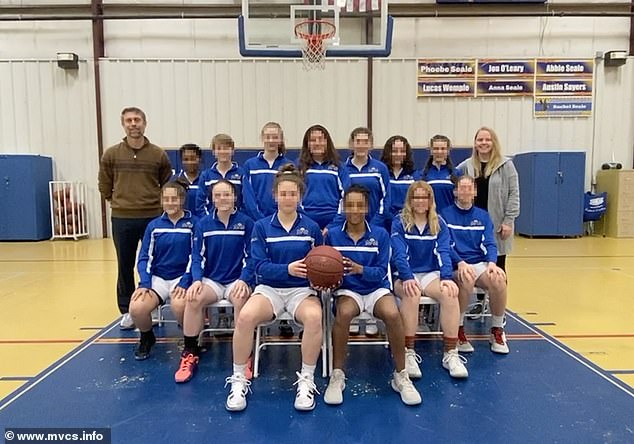Microsoft-Activision Deal: FTC Files Appeal

Table of Contents
The FTC's Arguments Against the Microsoft-Activision Merger
The FTC's appeal centers around concerns that the Microsoft-Activision Deal will significantly reduce competition and harm consumers. Their arguments hinge on two key areas: anti-competitive practices and the impact on multiplatform game titles.
Concerns about Anti-Competitive Practices
The FTC argues that the merger would grant Microsoft excessive market dominance, potentially creating a monopoly in several gaming sectors. They fear this will stifle innovation and lead to higher prices for consumers. The acquisition of Activision Blizzard, home to hugely popular franchises like Call of Duty, World of Warcraft, and Candy Crush, would significantly bolster Microsoft's already substantial presence in the gaming market, particularly through its Xbox Game Pass subscription service.
Key concerns raised by the FTC include:
- Reduced competition in subscription services: Integrating Activision Blizzard's titles exclusively into Xbox Game Pass could significantly hinder competitors like PlayStation Plus and Nintendo Switch Online.
- Higher prices for consumers: Less competition could lead to increased prices for games and subscription services.
- Less innovation in the gaming industry: A lack of competition can stifle innovation and limit the variety of games available to consumers.
- Antitrust violations: The FTC alleges the merger violates antitrust laws designed to prevent monopolies and protect competition.
Impact on Multiplatform Game Titles
A crucial aspect of the FTC's argument centers on the potential for Microsoft to make key Activision Blizzard titles exclusive to Xbox, thus limiting access for players on PlayStation, Nintendo Switch, and PC. This platform exclusivity is a major source of concern, raising fears about the future of multiplatform games and the broader competitive landscape. The FTC argues that making titles like Call of Duty exclusive would significantly harm competition and ultimately disadvantage consumers. This concern extends to the impact on game developers and publishers who may face pressure to prioritize the Xbox ecosystem.
Microsoft's Response to the FTC Appeal
Microsoft has vigorously defended the Microsoft-Activision Deal, arguing that the merger will ultimately benefit consumers. Their response tackles the FTC's concerns head-on.
Microsoft's Defense of the Merger
Microsoft's primary defense revolves around their commitment to maintaining Call of Duty and other key Activision Blizzard titles on PlayStation and other platforms. They have publicly pledged to continue releasing these games on PlayStation for at least 10 years, attempting to alleviate concerns about platform exclusivity. They also emphasize the benefits of integrating Activision Blizzard's games into Xbox Game Pass, arguing this expands access and lowers the cost of gaming for many consumers. Furthermore, they highlight that their increased market share would not necessarily translate to less competition, pointing to the continued strength of other major gaming companies. They cite the expansion of game accessibility through Game Pass as a major consumer benefit.
Legal Strategy and Next Steps
Microsoft's legal strategy likely involves presenting evidence to counter the FTC's claims, emphasizing their commitment to maintaining a competitive gaming market and highlighting the benefits of the merger for consumers. The timeline for the appeal process is uncertain, but it could involve several months or even years of legal battles and court hearings. Potential outcomes range from the appeal being successful, potentially blocking the merger, to the judge upholding the initial ruling, allowing the merger to proceed, possibly with conditions.
Potential Outcomes and Implications for the Gaming Industry
The outcome of the FTC's appeal will have profound implications for the gaming industry.
Scenarios Following the Appeal
Several scenarios are possible:
- The FTC prevails: The deal is blocked, potentially leading to a reshuffling of the gaming landscape and leaving Activision Blizzard independent.
- Microsoft wins the appeal: The merger proceeds as planned, potentially solidifying Microsoft's position as a dominant player in the gaming market.
- A negotiated settlement: Microsoft might agree to concessions, such as stricter stipulations regarding platform exclusivity, to secure regulatory approval.
Each scenario will have unique consequences for game prices, availability, and competition. The merger approval process is fraught with regulatory hurdles, and the outcome will significantly impact the future direction of the gaming industry.
Long-Term Effects on the Gaming Market
Regardless of the immediate outcome, the FTC's appeal highlights the ongoing debate surrounding industry consolidation and the potential impact on consumer choice. The long-term effects could include shifts in game development strategies, changes in distribution models, and alterations to the overall competitive landscape. This Microsoft-Activision Deal serves as a crucial case study in the ongoing evolution of the gaming industry and its regulatory environment.
Conclusion: The Future of the Microsoft-Activision Deal Remains Uncertain
The FTC's appeal against the Microsoft-Activision Deal represents a significant turning point in the gaming industry. The arguments presented by both the FTC and Microsoft highlight the complex interplay between antitrust concerns, innovation, and consumer benefit. The future of this gaming merger remains uncertain, with several possible outcomes and far-reaching implications for gamers worldwide. The long-term effects on the competitive landscape and consumer choice will depend heavily on the resolution of this appeal. Stay informed about the ongoing developments in the Microsoft-Activision Deal and share your opinions; the future of gaming depends on it!

Featured Posts
-
 The 10 Greatest Film Noir Movies Ever Made
May 10, 2025
The 10 Greatest Film Noir Movies Ever Made
May 10, 2025 -
 Lac Kir Dijon Violente Agression De Trois Hommes
May 10, 2025
Lac Kir Dijon Violente Agression De Trois Hommes
May 10, 2025 -
 Are Landlords Price Gouging After The La Fires A Selling Sunset Perspective
May 10, 2025
Are Landlords Price Gouging After The La Fires A Selling Sunset Perspective
May 10, 2025 -
 Stock Market Today Sensex Up 100 Points Niftys Strong Performance
May 10, 2025
Stock Market Today Sensex Up 100 Points Niftys Strong Performance
May 10, 2025 -
 Arresto De Estudiante Transgenero Por Usar Bano Femenino Analisis Del Caso
May 10, 2025
Arresto De Estudiante Transgenero Por Usar Bano Femenino Analisis Del Caso
May 10, 2025
